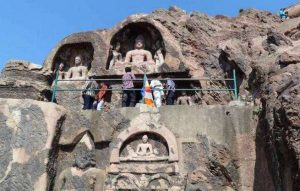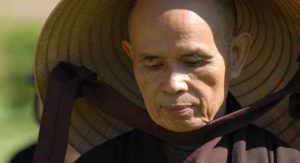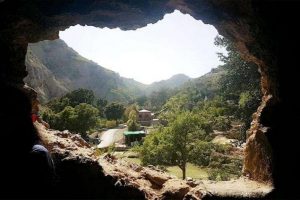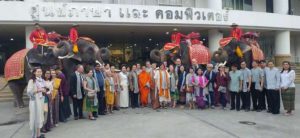
Hundreds of indigenous families in the Rangamati and Khagrachari districts of the Chittagong Hill Tracts (CHT) of southeastern Bangladesh are living in the forest or in hiding following a recent outbreak of communal violence that has resulted in several deaths and widespread damage to property.
The families fled for their lives when Bengali Muslim settlers attacked the indigenous residents, looting and burning their houses and businesses. “Like many, we fled from the area and took shelter in the forest. From here, we could see the blaze and smoke. We fear many of our houses and businesses have been torched,” local resident Inasta Chakma told The Daily Star newspaper. (The Daily Star)
The CHT, consisting of Rangamati, Khagrachari, and Bandarban districts, is home to more than 11 ethnic indigenous minority communities, the majority of whom follow Theravada Buddhism. Past Bangladeshi governments have introduced thousands of Bengali Muslim settlers to the CHT from the plains districts of the country, which has led to forced land-grabs, cases of harassment and rapes of indigenous girls and women, and the destruction of businesses and crops by the incoming settlers.
Protests by the indigenous communities have often been met by attacks from the settlers. The region is also heavily militarized. A 2012 report by the non-profit International Work Group for Indigenous Affairs (IWGIA) indicated that a third of Bangladesh’s army is stationed in the region, making it the most militarized region in the country. Although successive governments have insisted that the military presence is necessary to ensure peace, indigenous communities have complained of attacks and atrocities by the settlers with the support of security personnel.

According to local media reports, the most recent outbreak of violence was sparked by the death of a Bengali Muslim, an alleged motorcycle thief, in Khagrachari District. A group of settlers subsequently marched to protest his death, which was followed by a counter-procession by indigenous students. These incidents ignited a series of counter protests and attacks that spread into the adjacent Rangamati District, leading to the deaths of four indigenous people. The situation in the region remained tense at the time of writing.
The historic Maitri Vihar, a Buddhist monastery in Rangamati of the Parbatya (Hill) Bhikkhu Sangha Bangladesh, was also attacked. According to resident monk Nandasara Bhikkhu, the assailants looted donation boxes after vandalizing the premises. The monk urged the government to conduct a fair investigation to ensure that the culprits were brought to justice.
Speaking to The Business Standard newspaper, Devasish Roy, the chief of the Chakma Circle, one of three hereditary chiefdoms in the CHT, blamed the violence on repeated failures by past governments to take decisive action. “This isn’t the first time such violence has occurred, and those responsible have yet to be identified or held accountable. Failing to punish past offenders sends a message that this behavior has no consequences,” Roy was quoted as saying. (The Business Standard)

The International Chittagong Hill Tracts Commission (CHTC) and the IWGIA have condemned the violence. In a statement, the two organizations blamed the military for supporting the settlers in attacking the indigenous communities. The statement, quoted by The Daily Star, read:
The military’s role during these attacks raises serious concerns. Live footage from Rangamati shows settlers armed with clubs and sticks walking behind three military pickups around noon in the Fishery Ghaat area, with no intervention by the military. This mob later proceeded to attack Jummo individuals and their properties. (The Daily Star)
Both the CHTC and the IWGIA have demanded that Bangladesh’s interim government form an UN-led inquiry committee to investigate the violence in Khagrachhari and Rangamati, and the role of the military.
Meanwhile, a statement posted on the official Facebook page of the chief advisor of the interim government, Prof. Muhammad Yunus, a 2006 Nobel Peace Prize winner, urged calm and stated that all violent incidents would be investigated. An advisor to the Home Ministry, one of three advisors sent by Prof. Yunus to the region to look into the matter, promised to punish the culprits. (Dhaka Tribune)

Clashes between indigenous communities and Bengali Muslim settlers are common in the CHT. In 1992, several hundred unarmed indigenous people were killed in Logang, Khagrachari. In Rangamati in 1998, 40 indigenous people were killed in attacks. More than 400 houses and Buddhist monasteries of indigenous communities were burned down in 2010, and hundreds of houses of indigenous people were burned in 2017. In each case, the attacks were reported to have been supported by, or carried out in the presence of, security forces. No investigations have been conducted into these events, and no perpetrators have been charged or punished.
Seem more
Decisive action in previous incidents could’ve prevented latest CHT unrest: Chakma king (The Business Standard)
Fear, tension shroud hills after violence (The Business Standard)
30 indigenous homes, shops set on fire in Khagrachhari (The Daily Star)
CHTC, IWGIA want UN-led committee to probe CHT violence (The Daily Star)
CHT violence: Three cases filed over murders, vandalism (Bangladesh Post)
Fear reigns in CHT (New Age)
Home Adviser: No clemency for anyone disrupting law, order situation in CHT (Dhaka Tribune)
Bangladesh: Reprisal killings in Logong, Chittagong Hill Tracts, in April 1992 (Amnesty International)
Related news report from Buddhistdoor Global
US Department of State Honors Bangladeshi Social Activist Rani Yan Yan with 2023 Global Anti-Racism Champions Award
Hindu Buddhist Christian Unity Council Seeks Greater Representation in Bangladesh
Engaged Buddhism: Ven. Pomnyun Sunim and JTS Volunteers Bring 100,000 Gas Stoves to Rohingya Refugees in Bangladesh
Hundreds of Homes of Indigenous Buddhists in Bangladesh Burned Down by Bengali Settlers
Student Leader from Bangladesh Buddhist Community Allegedly Tortured to Death by Security Forces
Forced Religious Conversion of Children in Bangladesh’s Chittagong Hill Tracts on the Rise














If the attacks by Muslims on Buddhist minorities are done while the military is present, you can be sure the government is in full favor of those attacks, despite of the official message that they are not. Very sad, but to be expected as Muslim communities are not tolerant of minorities of other faiths.